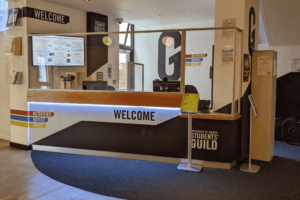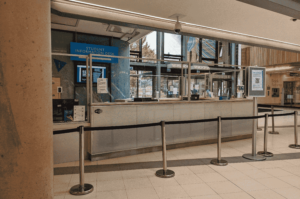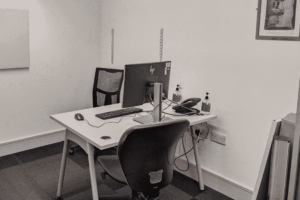An introduction to the support and services available at our university.
Background
Our AccessAbility team offers support, information and guidance on any disability related matters within our university. Support is available to students with a range of disabilities and long term conditions such as autism, dyslexia, mental health conditions (e.g. depression, anxiety, etc), a long term condition (e.g. chronic fatigue syndrome, epilepsy, etc), a physical or sensory condition. Support is tailored on an individual basis in order to ensure access to the most effective support for you. Some examples of support other students have found useful are:
- Exam or Assessment adjustments (e.g. extra time, use of a PC, etc.)
- Support with reading and research (e.g assistance to locate books, access to alternative formats, etc)
- Access to specialist equipment and assistive software (e.g. text to speech to assist with research and proofreading, mind mapping to assist with planning and organising work, etc)
- 1:1 support (e.g. mentoring)
Students at University of Exeter are also able to access the following support:
Students’ Guild
The Students’ Guild is here to help you get the most out of university. The Guild is led by students and represents your interests in all aspects of student life. You can join lots of societies representing a huge range of interests, take part in volunteering, have your say on life at university, and access lots of advice about things like accommodation and academic appeals. Find out more about what the Student’s Guild can offer here.

Financial support
The Students’ Guild can also help you with any worries that you might have about your finances. There is also a Support for All fund which is there to offer additional financial support if you are experiencing unexpected financial hardship which is affecting your ability to study in your current academic year. The fund can also be used to pay for diagnostic assessments or specialist equipment. Find out more about financial advice from the Students’ Guild and the Success for All fund.
Wellbeing Services
We want you to thrive at university, but everyone sometimes has tough times when you need support. We help all students with our free and confidential wellbeing service. We work to a stepped care model, which means you engage in the least intensive, invasive support measures possible. We will give initial advice and guidance to stop things getting worse. We can offer workbooks and online support, as well as one-to-one support on campus and link you with external organisations. We also have relationships with external specialist services and urgent NHS support. Find out more about our Wellbeing Services here.
Education Welfare Team
Sometimes your mental or physical health or wellbeing can have an effect on your ability to study. We have a helpful and experienced Education Welfare Team who can talk to you confidentially about any worries you may have about your academic progress, meeting a deadline, taking a break from your studies, or finding ongoing support. Find out more about our Education Welfare Team here.
Accommodation services and Residence Life
We endeavour to make reasonable adjustments to support you if, due to a disability or sensory needs, you require adapted accommodation or a particular locality to help you participate fully and enjoy a fulfilling university experience. We have a limited number of adapted and accessible rooms, so please contact the AccessAbility team early to discuss your needs. You can also apply for a financial subsidy towards the additional accommodation costs that you might incur as a result of your disability. Find out more about how to apply for an accessible room here.
We also have a dedicated Residence Life Team who are here to provide you with support, guidance and advice about living in residence at university. They can help you with any worries you have about flatmate issues, bullying, or living in the city in your second year. Find out more about the Residence Life Team here.
Multifaith Chaplaincy
The Multifaith Chaplains provide students of all faiths and worldviews, whether religious or not, a safe space to talk. They offer students a confidential and non-judgemental ear. They are available for you to share any concerns, to support your wellbeing and help you enjoy your time at University of Exeter. Find out more about our Multifaith Chaplaincy here.
Exehale quiet space
Exehale is a pop-up wellbeing quiet space in Devonshire House on Streatham Campus. Exehale is available for any student to book and we hope you enjoy its peaceful environment and the wellbeing resources there. Find out more about Exehale here.
The Study Zone
The university has a huge range of resources to help you with your studies. You can arrange for 1:1 appointments with a study skills advisor, go to an informal Writing Café, get a peer mentor, go to a study skills workshop, or just browse the online resource bank ‘Study Zone Digital’. You will also have access to Studiosity and can get online feedback on your work, 24 hours a day, 7 days a week. Find out more about Study Zone here.
The Career Zone
When you are ready to start thinking about the future and would like to get some advice on careers, the Career Zone is here to help. You can make an appointment to talk with a careers advisor about writing your CV, asking for reasonable adjustments for interviews, disclosing your disability to employers, and we can help you find a careers mentor. Find out more about how the Career Zone supports disabled students here.
Support for postgraduate students
Postgraduate study is challenging as well as exciting, so it’s quite natural to experience some stress or anxiety at times. In addition to being able to access all of our support services while you are enrolled at University of Exeter, our support services are available to postgraduate students outside of term-time and we have some specific workshops that are tailored for postgraduate students. Find out more about postgraduate student support here.

How could this affect me?
Getting used to life as a university student can be a challenge for anyone, it is important to know that there is support, information and resources available if you need them. Talking to us about the support available, any questions or concerns you have, and visiting campus, might help you make a decision whether you want to study with us, and ensure you have the best possible university experience if you do.
What to do next?
Contact AccessAbility to find out more about the support available at University of Exeter
Practical tips
Where possible we would suggest you contact our AccessAbility team as soon you have an offer of a place, even if you haven’t decided that you are definitely studying with us. This will give us plenty of time to talk about your support, give you an opportunity to look around our campus and ensure any support is in place for when you start.
T: 01392 723 880
E: accessability@exeter.ac.uk
W: https://www.exeter.ac.uk/students/wellbeing/bookanappointment/
Additional information and links
One to one mentoring sessions may be held in one of a number of rooms spread across the Streatham campus. Your mentor will help you find where to go.

If you have trouble with your digital devices, the Digital Hub based in the Forum may be able to help. There is more information about this service here.



 Back
Back